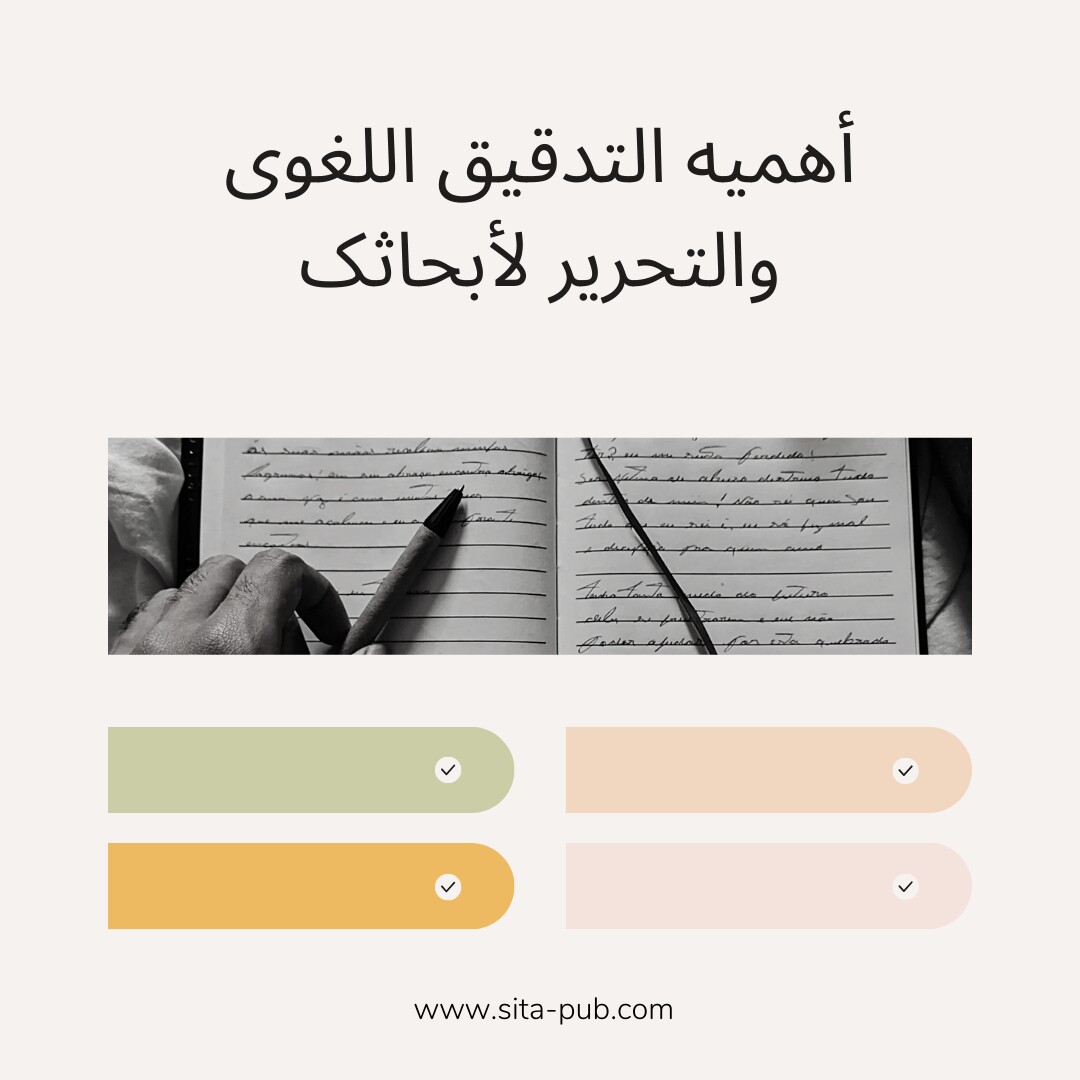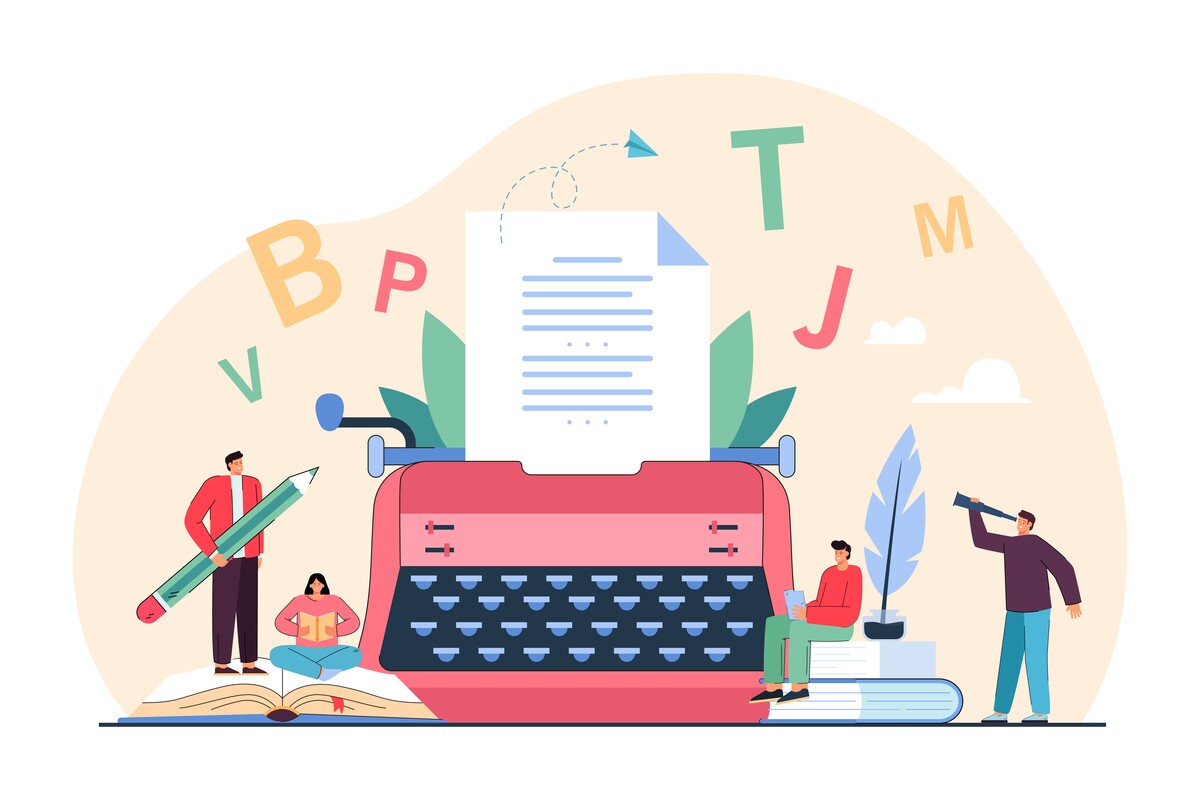أهمیه التدقیق اللغوی والتحریر لأبحاثک


لقد بذلت جهدًا کبیرًا فی بحثک - من تصمیم التجارب، وتحلیل البیانات، واستخلاص الاستنتاجات القیمه. الآن، بینما تستعد لمشارکه نتائجک، من الضروری تقدیم عملک بشکل احترافی. حتى أکثر الاکتشافات ابتکارًا قد یتم تجاهلها إذا کانت مکتوبه أو محرره بشکل سیء. خدمات تحریر وتدقیق الأبحاث هی خطوات أساسیه یمکن أن تعزز بشکل کبیر فرص قبولک وتضمن أن یحصل بحثک على الاهتمام الذی یستحقه.
الوضوح والاختصار: الورقه المحرره بشکل جید واضحه ومباشره، مما یمکّن القراء من فهم حججک دون أن تعترضهم لغه معقده أو مصطلحات غیر ضروریه. الکتابه الواضحه تضمن أن یتم إیصال رسالتک بفعالیه، مما یجعل بحثک أکثر جذبًا.
منطق قوی وتدفق سلس: یساعد التحریر الأکادیمی فی تحدید التناقضات وضمان الانتقال السلس بین الأقسام. هذا التقدم المنطقی یعزز حججک ویزید من تأثیر استنتاجاتک.
تحسین الهیکل والتنظیم: یمکن للمنظور الجدید أن یکشف عن مجالات یمکن تحسین تنظیمها فی تحریر المخطوطات، مما یضمن تقدیم نتائجک بشکل واضح. الورقه المنظمه بشکل جید تسمح للقراء بالتنقل بسهوله بین حججک.
القضاء على التحیز والغموض: یساعد التحریر فی إزاله التحیز غیر المقصود والغموض، مما یضمن تقدیم بحثک بشکل موضوعی. هذا یعزز مصداقیه وثقه عملک.
تحسین الأسلوب والنغمه: من المهم تخصیص أسلوب الکتابه ونغمه المقال وفقًا لمتطلبات المجله المحدده. فکل مجله لدیها توقعات مختلفه، ومواءمه کتابتک مع هذه التوقعات یمکن أن تحسن فرص قبولک عند التقدیم للنشر.

خذ استراحه: بعد الانتهاء من الکتابه، ابتعد عن الورقه لبضعه أیام. هذه الاستراحه تمنحک فرصه العوده برؤیه جدیده، مما یسهل اکتشاف الأخطاء.
اقرأ بصوت عالٍ: قراءه الورقه بصوت عالٍ یمکن أن یساعدک فی اکتشاف الأخطاء النحویه والتعبیرات الغریبه التی قد لا تکون واضحه عند القراءه الصامته.
رکز على جوانب مختلفه: ابدأ عملیه التحریر على مراحل، أولاً تقییم الهیکل العام، ثم الوضوح، وأخیرًا النحو وعلامات الترقیم.
اطلب تعلیقات: طلب مراجعه من زمیل أو مرشد موثوق یمکن أن یوفر رؤى قیمه ویساعد فی اکتشاف الأخطاء التی قد تکون فاتتک.
استخدم أدوات التحریر: على الرغم من أن أدوات فحص القواعد یمکن أن تکون مفیده، إلا أنها لیست دائمًا دقیقه. قد تفوت بعض التفاصیل التی قد یلاحظها محرر بشری. استخدمها دائمًا بجانب مراجعتک الشخصیه.

اقرأ عکسیًا: هذه التقنیه تساعدک على الترکیز على الجمل الفردیه واکتشاف الأخطاء التی قد تُغفل فی تدفق القراءه.
تحقق من الاتساق: تأکد من استخدام مصطلحات وتنسیق متسق طوال الورقه للحفاظ على الاحترافیه.
اهتم بالاستشهادات: تحقق من دقه جمیع الاستشهادات ومواءمتها مع إرشادات التنسیق الخاصه بالمجله.
دقق من أجل الوضوح: تأکد من أن کل جمله وفقره واضحه. إذا کان هناک شیء غامض، قم بمراجعته حتى یتم توصیله بفعالیه.
لا تتعجل: خذ وقتک خلال عملیه التحریر. المراجعه الدقیقه أساسیه لإنتاج منتج نهائی مصقول.

المبنی للمجهول: على الرغم من أنه یمکن استخدامه بشکل مناسب، إلا أن الإفراط فی استخدام المبنی للمجهول قد یجعل الکتابه أقل جذبًا. یفضل استخدام البنیه الفاعلیه عندما یکون ذلک ممکنًا.
المصطلحات الفنیه: استخدم المصطلحات التقنیه بشکل معتدل واشرح المصطلحات الضروریه بوضوح، حیث قد لا یکون جمهورک على درایه بها.
ترکیب الجمل: تنویع طول وترکیب الجمل یساعد فی الحفاظ على تفاعل القارئ ویمنع الرتابه.
التکرار: تجنب تکرار نفس المعلومات. احرص على الاختصار والوضوح فی نقاطک الرئیسیه.

لمن یبحثون عن مساعده خبراء، یمکنهم النظر فی منظمات التحریر المهنیه. تقدم هذه المنظمات خدمات تتراوح من التدقیق الأساسی إلى تحریر مقترحات المنح وتحریر الأطروحات، مما یضمن أن عملک یفی بأعلى المعاییر. تشمل المنظمات البارزه:
أکادیمیه سیتا
إن تقدیم مخطوطه مکتوبه أو محرره بشکل سیء یمکن أن یضر بقبول بحثک. قد تؤدی الأخطاء والتناقضات إلى الرفض أو ردود فعل سلبیه. من خلال استثمار الوقت فی التدقیق والتحریر، یمکنک تقدیم عملک بأفضل صوره ممکنه، مما یزید من فرص قبوله ویعزز تأثیره. یستحق بحثک أن یحصل على التقدیر—خذ الوقت لتلمیع عملک إلى الکمال!
تعزیز بحثک من خلال التحریر المهنی

هل ترغب فی تعزیز بحثک؟ یمکن لخدمات التحریر والتدقیق باللغه الإنجلیزیه الأصلیه من سیتا أن تساعد فی زیاده فرص قبول بحثک. سیقوم فریقنا الماهر بصقل کتابتک وتصحیح أی أخطاء، مما یضمن أن یبرز عملک. نحن متخصصون فی تحریر الأبحاث العلمیه، تحریر الکتابه الطبیه، تحریر الأطروحات، تحریر أوراق المؤتمرات، وأکثر. تواصل معنا الیوم لرفع مستوى بحثک!
إذا کان لدیک أی أسئله، استفسارات، أو ترغب فی معرفه المزید عن خدماتنا، فلا تتردد فی التواصل معنا. فریقنا المخصص مستعد لمساعدتک.